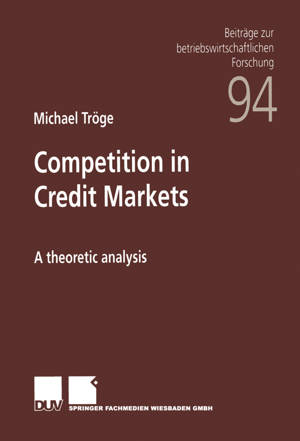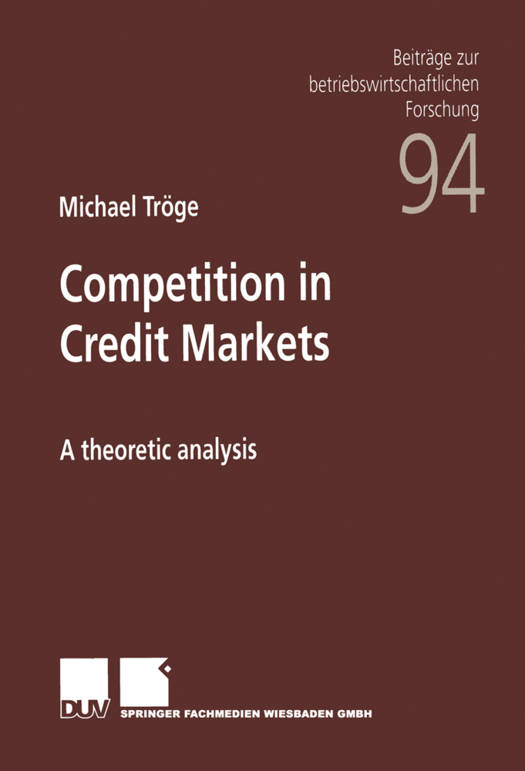
- Afhalen na 1 uur in een winkel met voorraad
- Gratis thuislevering in België vanaf € 30
- Ruim aanbod met 7 miljoen producten
- Afhalen na 1 uur in een winkel met voorraad
- Gratis thuislevering in België vanaf € 30
- Ruim aanbod met 7 miljoen producten
Zoeken
Omschrijving
Competition in credit markets is different from competition in simple product markets. The allocation of capital is not only determined by its price, but banks actively decide to whom they will provide finance. In addition, the provision of credit is not a spot transaction, but extends over a certain period of time. Banks need to acquire information in order to efficiently screen borrowers before providing credit and to monitor them during the credit relationship to make sure that the credit will be paid back. Michael Tröge develops game-theoretic and auction-theoretic models for the strategic interaction of banks in the credit market. He shows that in narrow oligopolies only one bank will carry out detailed creditworthyness tests for a firm and that in very competitive markets information about a borrower´s quality can reduce a bank´s profit. The author also points out that equity ownership of a bank increases the expected interest rates for a firm and that a bank´s concern for a good reputation may lead to credit rationing.
Specificaties
Betrokkenen
- Auteur(s):
- Uitgeverij:
Inhoud
- Aantal bladzijden:
- 117
- Taal:
- Engels
- Reeks:
- Reeksnummer:
- nr. 94
Eigenschappen
- Productcode (EAN):
- 9783824490486
- Verschijningsdatum:
- 27/09/2001
- Uitvoering:
- Paperback
- Formaat:
- Trade paperback (VS)
- Afmetingen:
- 148 mm x 210 mm
- Gewicht:
- 167 g

Alleen bij Standaard Boekhandel
+ 105 punten op je klantenkaart van Standaard Boekhandel
Beoordelingen
We publiceren alleen reviews die voldoen aan de voorwaarden voor reviews. Bekijk onze voorwaarden voor reviews.











